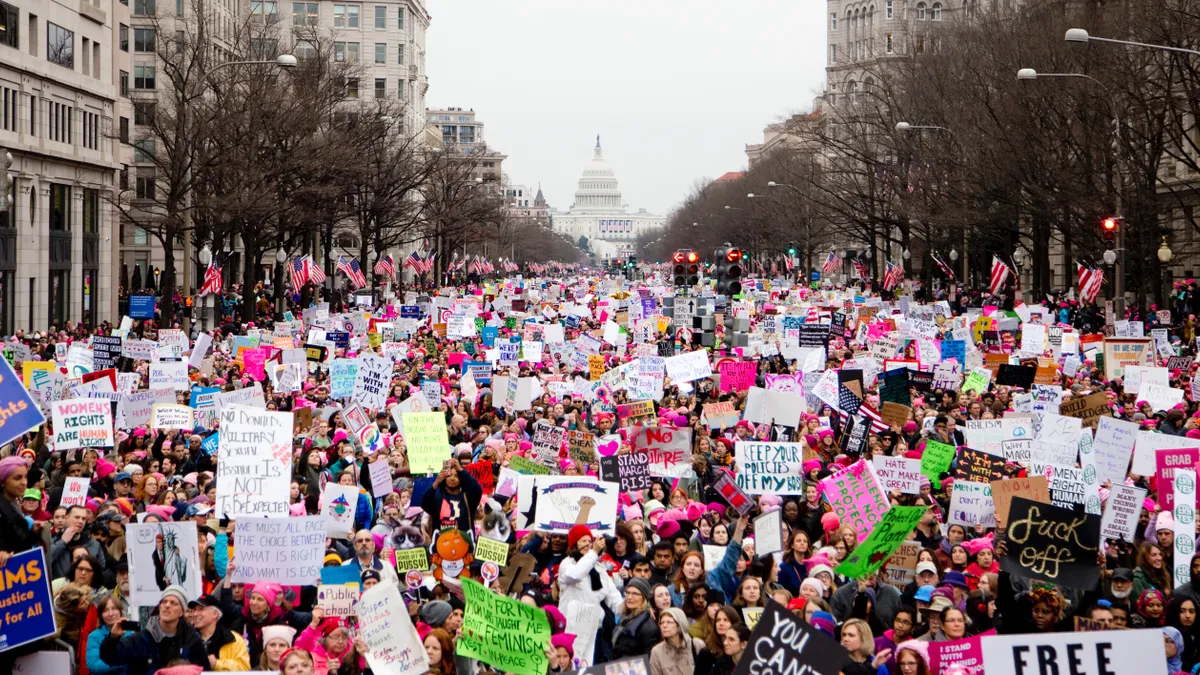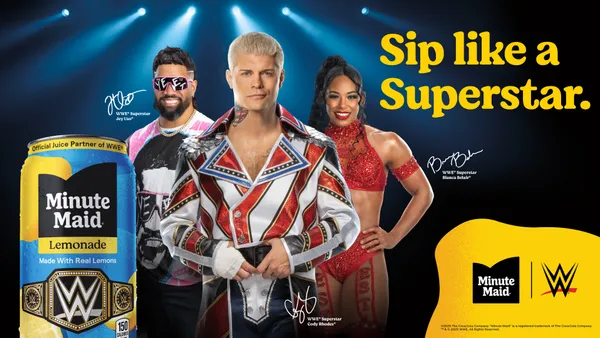Dive Brief:
- Almost two-thirds, or 64%, of consumers worldwide now purchase from — or boycott — a brand due to its stances on social or political issues, according to findings from the 2018 Edelman Earned Brand study. That figure mark a 13-point increase from last year's results.
- In the survey of 8,000 people across eight markets, "belief-driven buyers" were in the majority in the U.S. at 59% (up 12 points from last year); Japan at 60% (up 21 points); the U.K. at 57% (up 20 points); and Germany at 54% (up 17 points). Fifty-three percent of respondents thought brands can do more to solve social problems than governments, and 54% think it's easier to get brands to address social issues than governments. Forty-six percent of consumers also think brands have better ideas for solving problems than governments.
- Consumers are also almost equally likely to express purchase intent after a "values-led communication" at 43% compared to a product-focused message at 44%. In driving advocacy, values-based messages were more effective at 32% than product-focused communications at 26%. Sixty percent of consumers think brands should make it easier for them to learn about brand values and positions on issues prior to making a purchase.
Dive Insight:
The latest Edelman Earned Brand survey signals that the accelerating industry trend toward cause- and purpose-led marketing strategies is unlikely to stem anytime in the near future. The findings that many people trust brands more than governments in solving social issues is potentially alarming, but has been reflected in several recent campaigns from major companies. Domino's Pizza, for example, in June began addressing crumbling infrastructure problems in American cities by helping to fund pothole repairs in municipalities in Texas, Georgia and California. In August, the fast-food chain expanded the budget of the program to accomdate all 50 states.
While infrastructure improvements are fairly uncontroversial, other brands have thrown their hat further into the political ring to address social injustice, courting serious controversy. Nike in September put Colin Kaepernick, the NFL player who started league protests against police brutality, at the center of its latest "Just Do It Campaign." Due to Kaepernick's stances, including by kneeling during the national anthem at games, the ads drew social media backlash and boycotts, but also resonated with many consumers and helped to drive a big sales boost for the athletic apparel retailer. Nike CEO Mark Parker said on a recent call with analysts discussing fiscal 2019 Q1 results that there had been "record engagement with the brand" due to the campaign, and that its message "connected with people around the world."
The Edelman survey revealed a slight age gap among consumers who choose brands based on their positioning on these types of causes. Sixty-nine percent of consumers age 18-34 and 67% of those 35-54 would purchase or boycott brands due to their politics, compared to 56% of consumers 55 and older. This finding is in line with a recent MNI Targeted Media study that showed 56% of Gen Zers consider themselves to be socially conscious. More than half of Gen Zers surveyed by MNI said knowing that a brand is socially conscious influences their purchasing decisions.
Marketers should also note the Edelman study finding that 56% of consumers think marketers spend too much time looking for ways to "force" them to pay attention to messaging and not enough time delivering messages in ways that are genuinely attention-grabbing. Messages delivered via earned media were more successful in engaging consumers at 45% compared to paid advertising at 29% and owned media at 25%.














